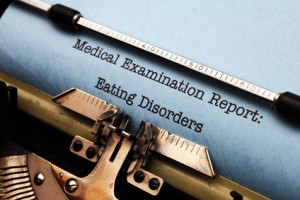- Calls to this hotline are currently being directed to Within Health or Eating Disorder Solutions
- Representatives are standing by 24/7 to help answer your questions
- All calls are confidential and HIPAA compliant
- There is no obligation or cost to call
- Eating Disorder Hope does not receive any commissions or fees dependent upon which provider you select
- Additional treatment providers are located on our directory or samhsa.gov
Participating in Research Studies as a Form of Treatment for Eating Disorders

Contributor: Leigh Bell, BA, writer for Eating Disorder Hope
When insurance doesn’t cover adequate eating disorder treatment and they can’t pay out of pocket, many men and women participate in research studies.
Thousands of research studies on various aspects of eating disorders are happening around the world, and many researchers need participants. It’s normally free to participate in a study, and oftentimes, researchers provide nominal compensation and may even reimburse travel expenses.
Opportunities for Research Study Participation
For example, Johns Hopkins Eating Disorder Program is recruiting adults with anorexia for a study to test the effectiveness of an undisclosed medication in the treatment of the eating disorder. One group gets the medicine for 16 weeks, and the control group receives the placebo. Each group sees a psychiatrist once a week. The program will pay participants $2501.
Such opportunities abound, but is it really a qualified form of treatment? What if you get the placebo in the Johns Hopkins study? And if you don’t nothing says the medicine will work. Finding adequate treatment is important for eating disorders, which can be life-threatening if not treated appropriately.
Hopping across research studies could be risky. Yet, it may be the only option for those without insurance coverage for eating disorder treatment and without the money to pay sometimes exorbitant out-of-pocket costs.
Finding Recovery in Altruism

The Anorexia Nervosa Genetics Initiative (ANGI) is the largest and most rigorous genetic investigation of eating disorders ever conducted2. The ultimate goal of ANGI is to cure anorexia by gaining a greater understanding of the disorder.
Anyone who has struggled with anorexia at any point in their lives can participate (and even some who haven’t) by providing a blood sample and participating in a 30-minute interview. Compensation is a $25 Amazon gift card — and being part of the effort to cure an illness that’s the most common cause of death in young women3.
To find research studies, visit the U.S. National Institutes of Health resource www.clinicaltrials.gov.
Community Discussion – Share your thoughts here!
Have you or your loved one participated in a clinical trial? What were the benefits that you discovered? What were the trials you encountered?
About the Author:
Leigh Bell holds a Bachelor of Arts in English with minors in Creative Writing and French from Loyola Marymount University in Los Angeles. She is a published author, journalist with 15 years of experience, and a recipient of the Rosalynn Carter Fellowship for Mental Health Journalism. Leigh is recovered from a near-fatal, decade-long battle with anorexia and the mother of three young, rambunctious children.
References:
- Volunteer for research. (n.d.). Retrieved July 1, 2015, from http://www.hopkinsmedicine.org/psychiatry/specialty_areas/eating_disorders/research.html.
- UNC Center of Excellence for Eating Disorders. (n.d.). Retrieved July 1, 2015, from http://www.med.unc.edu/psych/eatingdisorders/our-research/angi.
- Get the facts on eating disorders. (n.d.). Retrieved July 1, 2015, from https://www.nationaleatingdisorders.org/get-facts-eating-disorders.
Last Updated & Reviewed By: Jacquelyn Ekern, MS, LPC on July 22nd, 2015
Published on EatingDisorderHope.com
